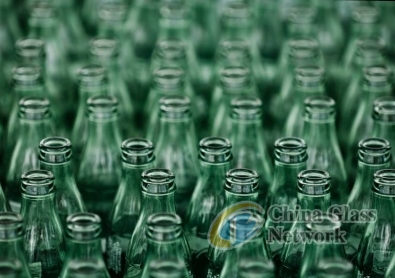Post Time:May 28,2019Classify:Company NewsView:1650
A deposit return scheme which includes glass will prompt brands to switch to plastic packaging, say glassmakers.
It follows the Scottish Government’s announcement to include glass packaging in a deposit return scheme (DRS).
In response the UK glass manufacturing sector said this will lead to brands to switch to plastic packaging.
The glass industry has also expressed its disappointment that industry and retailer views were overlooked.
The concern follows statements from Iceland, The Scottish Retail Consortium and The Scottish Beer and Pub Association, who said glass packaging should be excluded from the design of a DRS scheme to avoid estimated running costs of £50 million.
A DRS aims to generate more packaging for recycling, but experts have argued that including glass in a DRS would decrease the current UK glass collection rate of 67%.
The increased costs for including glass to retailers and brand owners will encourage a switch from glass to alternative packaging materials, meaning even more plastic will be on the market, said British Glass.
Members of the glass manufacturing sector said they are committed to increasing the use of recycled and glass (cullet) in their manufacturing process and support any initiatives to raise glass recycling.
Some industry furnaces already run on 90% recycled cullet, which saves raw material, reduces energy and CO2 emissions.
The UK glass sector has suggested ‘ambitious targets’ for glass collection of 85% by 2030 but believes that this is only achievable under an alternative Extended Producer Responsibility (EPR) Scheme.
The glass industry’s concerns to the proposed DRS are:
A DRS including glass will decrease the glass recycling rate:
· Glass collection rates across the UK is currently 67%, but the proposed DRS projects a collection rate of 60% on glass bottles only
· Consumers currently recycle all glass containers together, and adding a DRS to the infrastructure places an additional burden on households and retailers to sort out the products
· It undermines the viability of the existing glass collection system which could be put at risk, and many glass containers will not be included in the DRS (glass jars for food and sauce) leading to them potentially ending up in landfill.
The cost to include glass in a DRS will lead to unintended consequences:
· Studies show that the net cost of including glass in a DRS is higher than for other materials
· The DRS cost burden on glass packaging will impact brand-owners decision making and encourages a switch to plastic packaging
· Glass manufacturers will be forced to review investment plans in the UK, leading to job losses and plant closures.
A DRS for Scotland including glass does not support a circular economy:
· Including glass in a DRS will compound current waste issues by encouraging a move to plastic packaging, which isn’t infinitely recyclable in a circular economy model, unlike glass
· A vision for a “closed material loop” for glass is not realistic or achievement, given the high amount of goods supplied into the region.

Source: glass-international.comAuthor: Shangyi